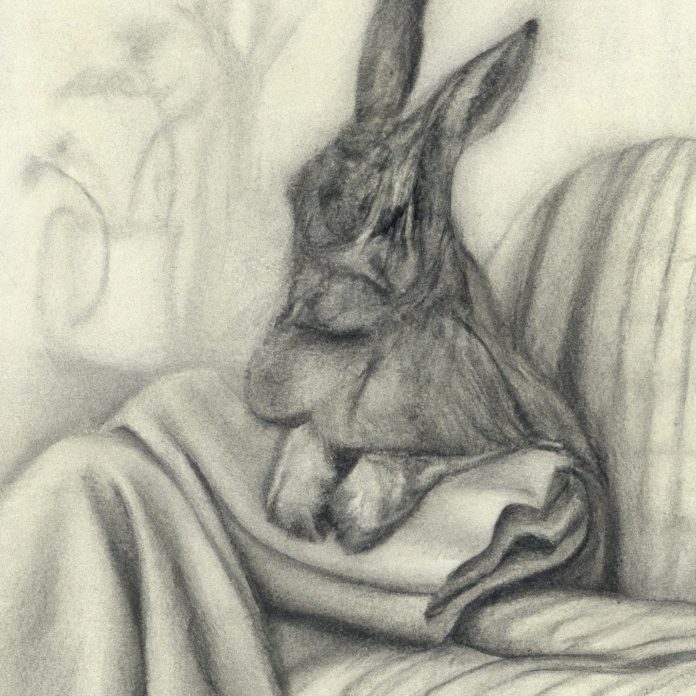Dear VetBabble: How Can I Help My Rabbit with GI Stasis Besides Taking It to the Vet?
As a warmhearted and informative veterinarian, I understand that many pet owners may have concerns about their pet’s health and well-being. One such concern that is quite common among rabbit owners is the issue of gastrointestinal (GI) stasis. While it’s essential to consult with a professional veterinarian when facing such problems, there’s also a role that pet owners can play in managing and preventing GI stasis. Let’s dive into a more detailed and informative response to help you better understand and care for your rabbit.
Understanding GI Stasis
GI stasis, also known as ileus or gastrointestinal hypomotility, is a life-threatening condition in which a rabbit’s digestive system slows down or stops completely. This can lead to a buildup of harmful bacteria and toxins in the gut, potentially causing severe pain, dehydration, and even death. Prompt veterinary treatment is crucial for a rabbit to stand a chance against GI stasis. It is essential to understand the signs, causes, and treatment options for this condition to provide the best care for your furry friend. To learn more about how to keep your rabbit healthy and happy, take a look at our comprehensive Rabbit Care Guide.
Settings and Symptoms
GI stasis can affect rabbits of any age, breed, or gender. It’s commonly triggered by several factors, including stress, dental problems, inadequate diet, and lack of exercise. Therefore, it’s crucial to keep your rabbit’s environment as stress-free as possible, provide proper nutrition and encourage exercise to prevent GI stasis.
Some common symptoms of GI stasis include:
- Reduced or absent appetite
- Small, hard, or irregular fecal pellets
- Lethargy
- Teeth grinding due to pain
- Hunched posture
If you notice any of these symptoms, it is essential to take your rabbit to a veterinarian as soon as possible for a proper diagnosis and treatment.
Prevention, Management, and Care for GI Stasis
While GI stasis is an urgent medical concern that requires professional veterinary care, there are some steps you can take to help prevent and manage it in your rabbit.
- Provide a proper diet: Ensure your rabbit gets a balanced and nutritious diet consisting of high-quality hay, fresh vegetables, and a limited amount of pellets and treat. Hay should make up around 80% of your rabbit’s diet. A healthy diet promotes healthy gut movement and prevents build-up in the digestive tract.
- Encourage exercise: Regular physical activity helps to keep your rabbit’s digestive system moving. Ensure your rabbit has ample space to hop, play, and explore both inside and outside of their cage or enclosure.
- Reduce stress: Minimize environmental stressors and provide a calm and comfortable habitat for your rabbit. Physical changes in their environment, illness, and fear can all trigger GI stasis in sensitive rabbits.
- Monitor your rabbit’s health: Pay close attention to your rabbit’s eating habits, fecal output, and overall behavior. Early detection of symptoms can help you seek timely veterinary care and increase the chances of successful treatment.
- Consult your vet for dental check-ups: Dental problems can lead to difficulties in eating and digesting food. Therefore, it’s essential to have your rabbit’s teeth examined regularly as a preventive measure against GI stasis.
In conclusion, GI stasis is a serious and life-threatening condition that requires immediate veterinary care. However, as a rabbit owner, you can play a vital role in preventing and managing this condition with good care, nutrition, and monitoring. Always consult with a veterinarian when you see signs of discomfort in any pet, be it a rabbit or a dog dealing with diarrhea or showing warning signs of bloat. In the case of bloat, it’s essential to know the warning signs and explore possible solutions like preventative gastropexy. Always remember that the best care for your pets starts with timely interventions and prevention.









